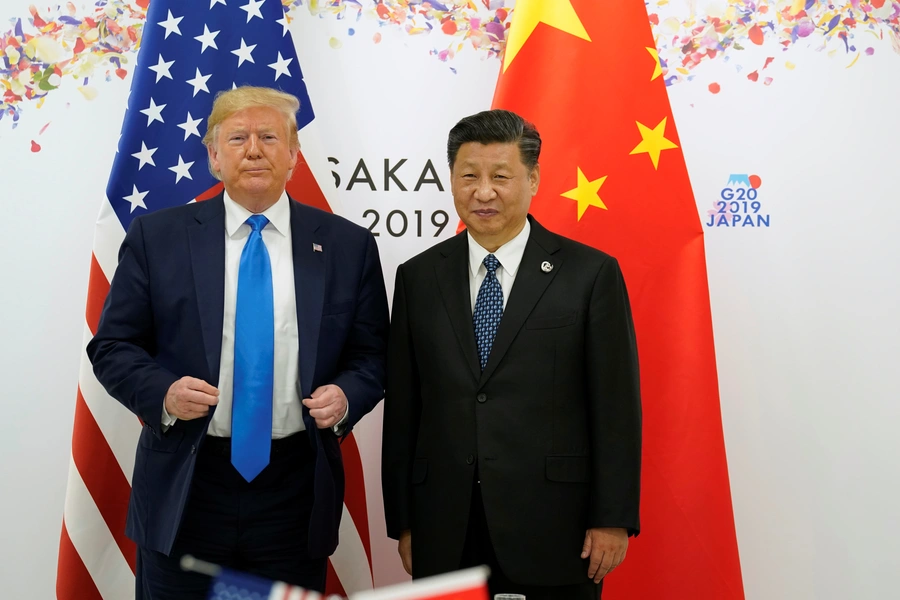The Hydra vs. the Headless Horseman: China and the United States

Even as COVID-19 continues to ravage the world, a secondary debate over the longer-term implications of the pandemic for global leadership has surfaced. Unsurprisingly, most of the debate has centered around China and the United States, and which country will emerge better positioned to lead. As of now, however, neither country merits consideration. They have both failed their own people and the rest of the world. CCP General Secretary Xi Jinping and President Donald Trump have not overcome their countries’ systemic weaknesses or their own personal failings but have succumbed to them.
Throughout the pandemic, China’s authoritarian leadership has operated without transparency, an open media, or a robust civil society. It has silenced truth-tellers—some of whom died, others of whom are still “disappeared”— and created false narratives about the disease, its timing, and its transmissibility that allowed it to spread both within China and globally. No one outside China—and maybe even inside China—believes the numbers of cases or deaths that Beijing has reported; and its recent decision to mandate centralized review of Chinese scientists’ COVID-19 research publications only underscores its fear of the unvarnished truth.
More on:
The Chinese Communist Party’s predilection for disinformation campaigns and coercive tactics as part of its diplomatic tool kit have produced a self-induced diplomatic debacle. Rather than acknowledge culpability for the initial spread of the virus, and then, with grace, lead the world in donations of personal protection equipment (PPE), the Chinese government has attempted to offload responsibility with spurious theories about the virus originating in Italy or dropped in Wuhan by the U.S. army. And it has sought public demonstrations of gratitude for its assistance from the rest of the world. (One might have thought Beijing would learn a lesson from its experience in Wuhan—that demanding thanks for helping to solve a problem you created is not a wise move.) And of course, the export of substandard PPE and painful videos of Africans in China being forcibly quarantined and turned out of their homes have only further undermined Beijing’s efforts to use its mask diplomacy to mask its culpability.
Washington’s behavior also denies the United States a path to post–COVID-19 global leadership. President Trump wasted weeks with his determination to ignore both the seriousness of the virus and the need to provide a strategy for responding to the threat. The country’s health bureaucracy has appeared woefully ill-prepared to manage the crisis, as have most states. It is possible to dismiss President Trump's claim to "total" authority as self-important posturing and to laugh off Governor Newsom's description of California as a “nation-state” as pandemic humor, but the real confusion surrounding lines of authority and responsibility that have played out throughout the crisis reflects the weakness and not resilience of the U.S. governance model. Even encouraging signs—such as the West Coast and East Coast states banding together to develop coordinated strategies—suggest that the very fabric of American institutions and politics is being—and must be—reconstructed.
On the global stage, the Trump White House has also underwhelmed. Secretary of State Pompeo’s insistence that the G-7 refer to COVID-19 as the “Wuhan virus” tanked efforts to arrive at a common statement among the members and was nothing less than a moment of national shame. And while many countries would likely agree that the World Health Organization's behavior at the outset of the crisis merits investigation, few would agree that President Trump's decision to call for a stay in U.S. funding for the WHO in the midst of the pandemic demonstrates sound thinking, much less great leadership.
Other nations have exemplified the type of leadership needed in the face of such a crisis—in particular, Taiwan, South Korea, and Japan. Unfortunately, none of these has the political, economic, and military wherewithal to lead globally over the long term. The only question that remains now is whether China or the United States will rise to the occasion in the aftermath of the crisis to demonstrate another quality of great leadership: an ability to learn, adapt, and do better. Unfortunately, the character of the current leadership in both Washington and Beijing means there is little chance of this. China’s Communist Party is like the mythological hydra of ancient Greece—a multi-headed serpentine beast that can approach its prey from multiple directions, feinting and distracting before eventually attacking. Cut off only one of its nine heads, and two will grow in its stead. President Trump, whose nightly briefings are destined to become late night horror-comedy classics, is like the headless horseman—a malevolent ghost riding without his head, carrying a jack-o’-lantern in its stead. Only when the American people get their horseman a new head, and the Chinese people find their inner Hercules and kill off all the hydra’s heads, will either country have an opportunity to lead.
More on:
 Online Store
Online Store